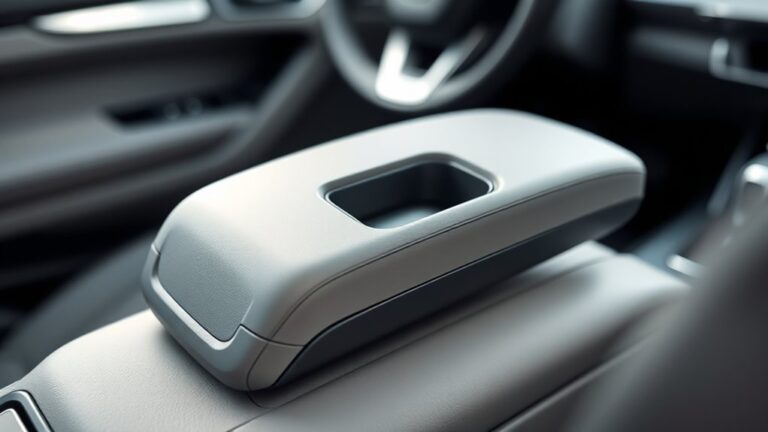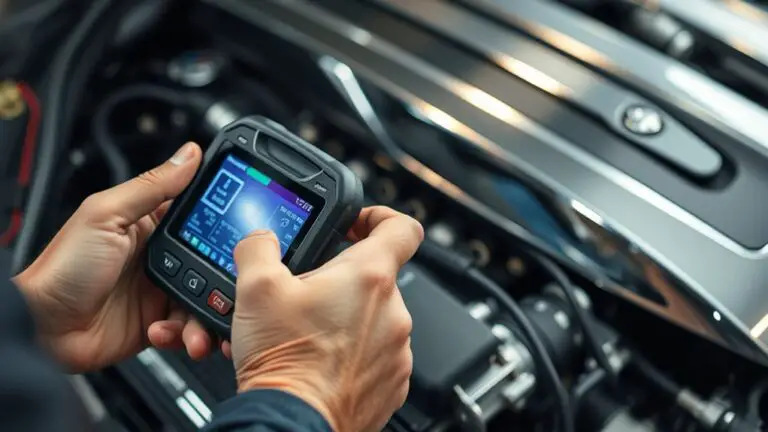Can You Mix Windshield Washer Fluid? (update 2023)
Windshield washer fluid is an essential component for safe driving, as it helps to clean dirt, grime, and other debris from the windshield. While many drivers prefer to buy pre-mixed windshield washer fluid, some may choose to mix their own fluid at home to save money or customize the formula.
However, there may be some confusion about whether different types or brands of windshield washer fluid can be mixed together. In this article, we will explore the question of whether you can mix windshield washer fluid and provide some guidance on how to do it safely and effectively.
We will also discuss the different types of windshield washer fluid and their respective ingredients, as well as some tips for maintaining your windshield washer system to ensure optimal performance.
Here is a link to Windshield Washer Fluid Concentrate on Amazon. If you want, you can buy it here at a low price.
Does Mixing Windshield Washer Fluids Improve Or Lower Effectiveness?
Mixing different brands or types of windshield washer fluid can potentially lower its effectiveness, depending on the specific products being mixed. This is because different windshield washer fluids may contain different ingredients and formulations that could react with each other in unexpected ways.
For example, some types of windshield washer fluid may contain methanol, while others contain isopropyl alcohol or ethylene glycol. Mixing these different types of fluids could result in a chemical reaction that could damage the vehicle’s windshield washer system or reduce the effectiveness of the fluid.
Some windshield washer fluids may be formulated to work best in specific temperatures or weather conditions. Mixing these fluids could affect their performance and make them less effective in certain conditions.
It’s generally recommended to stick to one type or brand of windshield washer fluid, unless the manufacturer specifically recommends mixing different fluids. If you need to mix windshield washer fluids, be sure to check the labels and ensure that they are compatible. It’s also a good idea to test the mixture on a small area of the windshield before using it on the entire surface to ensure that it doesn’t cause any damage or streaking.
What Do Experts Think About Mixing Windshield Washer Fluids?
Experts generally advise against mixing different brands or types of windshield washer fluid. The reason for this is that different types of fluids may contain different ingredients, such as methanol, isopropyl alcohol, or ethylene glycol, that could react with each other in unexpected ways. These reactions could cause damage to the windshield washer system or reduce the effectiveness of the fluid.
In addition, some windshield washer fluids are formulated to work best in specific temperatures or weather conditions. Mixing different fluids could affect their performance and make them less effective in certain conditions.
Therefore, it is generally recommended to stick to one type or brand of windshield washer fluid, unless the manufacturer specifically recommends mixing different fluids. If you must mix fluids, experts advise checking the labels and ensuring that they are compatible. It is also a good idea to test the mixture on a small area of the windshield before using it on the entire surface to ensure that it does not cause any damage or streaking.
Overall, experts caution against mixing windshield washer fluids and recommend sticking to one type or brand to ensure optimal performance and avoid potential damage to the vehicle’s windshield washer system.
Why Do People Always Mix Windshield Washer Fluids?
People may choose to mix windshield washer fluids for a variety of reasons, including cost savings or the desire to customize the formula. Pre-mixed windshield washer fluids can be relatively expensive, so some drivers may choose to mix their own fluid at home to save money. By purchasing the individual components of the fluid separately, drivers can often create a larger volume of fluid for a lower cost than buying pre-mixed fluid.
Some drivers may want to customize the formula of their windshield washer fluid to better suit their needs. For example, they may add a higher concentration of alcohol to the fluid to make it more effective in colder temperatures or add a detergent to help remove stubborn dirt and grime from the windshield.
Mixing different brands or types of windshield washer fluid can potentially lower its effectiveness or cause damage to the vehicle’s windshield washer system, as different fluids may contain different ingredients or be formulated to work best in specific conditions. Therefore, it’s important to exercise caution when mixing windshield washer fluid and ensure that the different components are compatible before mixing them together.
What About Mixing Summer And Winter Windshield Washer Fluids?
Mixing summer and winter windshield washer fluids is generally not recommended, as the two types of fluids are designed to work best in different temperature ranges. Winter windshield washer fluids typically contain a higher concentration of methanol or ethylene glycol, which helps to prevent the fluid from freezing in colder temperatures. Summer windshield washer fluids, on the other hand, often contain a higher concentration of isopropyl alcohol or other ingredients designed to help remove bugs and other debris from the windshield.
Mixing these two types of fluids could potentially reduce the effectiveness of the fluid in either hot or cold temperatures. In addition, mixing winter and summer fluids could result in the fluid freezing in colder temperatures, which could damage the vehicle’s windshield washer system.
Therefore, it’s generally recommended to use the appropriate type of windshield washer fluid for the current season and avoid mixing different types of fluids. If you need to switch between summer and winter fluids, it’s best to completely flush out the old fluid before adding the new fluid to ensure optimal performance.
Can I Mix Homemade And Manufactured Windshield Washer Fluid?
It is generally not recommended to mix homemade and manufactured windshield washer fluid, as there is no way to know for sure how the different ingredients will interact with each other. Homemade windshield washer fluids often use different types of ingredients than commercial fluids, and these ingredients may not be compatible with the additives and chemicals in manufactured fluid.
Mixing different types of windshield washer fluids can potentially reduce the effectiveness of the fluid or cause damage to the vehicle’s windshield washer system. In addition, using homemade fluids could void the manufacturer’s warranty on the vehicle’s windshield washer system.
If you must mix different types of windshield washer fluid, it’s important to read the labels and ensure that the fluids are compatible. It’s also a good idea to test the mixture on a small area of the windshield before using it on the entire surface to ensure that it doesn’t cause any damage or streaking.
Overall, it’s generally best to stick to one type or brand of windshield washer fluid to ensure optimal performance and avoid potential damage to the vehicle’s windshield washer system.
What If I Mix Windshield Washer Fluid With Water?
Mixing windshield washer fluid with water is a common practice, especially in warmer months. However, it’s important to use caution when diluting windshield washer fluid with water.
Most windshield washer fluids are designed to be used as-is, without the need for additional water. Adding too much water to the fluid can dilute its cleaning agents and reduce its effectiveness. In addition, using water that is too hard or has high mineral content can leave streaks and residue on the windshield.
If you do choose to mix windshield washer fluid with water, it’s generally recommended to use distilled or deionized water to avoid the buildup of mineral deposits. It’s also important to follow the instructions on the bottle and avoid diluting the fluid too much. Generally, a 50/50 mix of windshield washer fluid and water is a good place to start, but you should adjust the ratio based on your individual needs.
Overall, while mixing windshield washer fluid with water can be a cost-effective option, it’s important to exercise caution and avoid diluting the fluid too much to ensure optimal cleaning performance.
Will Mixing Windshield Washer Fluids Make It Last Longer?
Mixing windshield washer fluids will not necessarily make it last longer, and in fact, it can potentially reduce the effectiveness of the fluid.
Windshield washer fluids are designed with specific formulas that are optimized for cleaning and de-icing the windshield. Mixing different fluids can alter the chemical composition of the fluid and make it less effective at removing dirt, grime, and ice.
Mixing different types of fluids can also lead to the formation of chemical residues that can clog up the windshield washer system over time, causing damage and reducing the life of the system.
To ensure that your windshield washer fluid lasts as long as possible, it’s best to use the manufacturer’s recommended fluid for your vehicle and to follow the instructions on the bottle for use and storage. Proper storage, such as keeping the fluid in a sealed container and away from direct sunlight, can also help extend the life of the fluid.
Overall, mixing windshield washer fluids is not recommended and can potentially reduce the effectiveness and lifespan of the fluid.
Should I Mix Windshield Washer Fluids If They Have The Same Color?
The color of windshield washer fluid does not necessarily indicate that the fluids are compatible or that they can be mixed safely. Windshield washer fluids come in a variety of colors, but these colors are primarily used for branding and marketing purposes.
It’s important to always read the label on the windshield washer fluid bottles before attempting to mix them. The labels will provide information on the specific ingredients and additives in the fluid, as well as any instructions or warnings regarding mixing with other fluids.
It’s recommended to use only one type of windshield washer fluid for your vehicle, as mixing different fluids can potentially reduce the effectiveness of the fluid and cause damage to the windshield washer system.
If you do choose to mix windshield washer fluids, it’s important to follow the manufacturer’s recommendations and to test the mixture on a small area of the windshield before using it on the entire surface. This can help you avoid any potential issues with streaking, residue buildup, or damage to the windshield.
Should I Mix Antifreeze With Windshield Wiper Fluid?
No, you should not mix antifreeze with windshield wiper fluid. Antifreeze is designed to be used specifically in the engine’s cooling system to prevent it from freezing in cold temperatures and to help regulate engine temperature.
Windshield wiper fluid, on the other hand, is designed to clean and de-ice the windshield, and it contains specific ingredients that help it perform this function effectively.
Mixing antifreeze with windshield wiper fluid can create a dangerous mixture that can damage the windshield and harm the vehicle’s paint and finishes. Antifreeze is also toxic and can pose a danger to people and animals if it leaks or spills.
If you need to add antifreeze to your vehicle, it should be added directly to the engine’s cooling system according to the manufacturer’s recommendations. If you need to add windshield wiper fluid, use a product that is specifically designed for this purpose and follow the manufacturer’s instructions for use.
Does Windshield Washer Fluid Go Bad?
Yes, windshield washer fluid can go bad over time. The effectiveness of the fluid can be affected by exposure to sunlight, heat, and other environmental factors.
The main ingredients in windshield washer fluid are water and a cleaning agent, such as methanol or ethylene glycol. Over time, the water in the fluid can evaporate, leaving behind a higher concentration of the cleaning agent. This can make the fluid more effective at cleaning, but it can also make it more harsh and potentially damaging to the vehicle’s finishes and components.
In addition to evaporation, windshield washer fluid can also be affected by microbial growth or contamination. This can cause the fluid to become cloudy, discolored, or foul-smelling. If the fluid appears to be contaminated or has been sitting unused for a long period of time, it should be disposed of properly and replaced with fresh fluid.
It’s generally recommended to replace windshield washer fluid every six months to a year, depending on usage and environmental conditions. This can help ensure that the fluid is effective at cleaning and de-icing the windshield and that it does not cause any damage to the vehicle’s finishes or components.
Is It Bad To Mix Windshield Washer Fluid?
Mixing different types of windshield washer fluid is generally not recommended, as it can potentially reduce the effectiveness of the fluid and cause damage to the vehicle’s windshield washer system. The different types of fluid may contain different additives or concentrations of cleaning agents, which can interact in unintended ways when mixed together.
In addition, some windshield washer fluids are designed for specific temperatures and weather conditions, such as winter or summer formulas. Mixing different formulas can cause the fluid to be less effective at cleaning and de-icing the windshield in the intended conditions.
If you do choose to mix windshield washer fluids, it’s important to follow the manufacturer’s recommendations and to test the mixture on a small area of the windshield before using it on the entire surface. This can help you avoid any potential issues with streaking, residue buildup, or damage to the windshield.
It’s generally recommended to use only one type of windshield washer fluid for your vehicle and to replace it regularly, according to the manufacturer’s recommendations. This can help ensure that the fluid is effective at cleaning and de-icing the windshield and that it does not cause any damage to the vehicle’s finishes or components.






